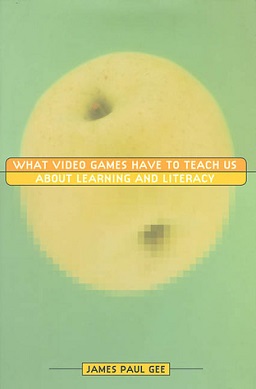Educational psychology is the branch of psychology concerned with the scientific study of human learning. The study of learning processes, from both cognitive and behavioral perspectives, allows researchers to understand individual differences in intelligence, cognitive development, affect, motivation, self-regulation, and self-concept, as well as their role in learning. The field of educational psychology relies heavily on quantitative methods, including testing and measurement, to enhance educational activities related to instructional design, classroom management, and assessment, which serve to facilitate learning processes in various educational settings across the lifespan.
An instructional theory is "a theory that offers explicit guidance on how to better help people learn and develop." It provides insights about what is likely to happen and why with respect to different kinds of teaching and learning activities while helping indicate approaches for their evaluation. Instructional designers focus on how to best structure material and instructional behavior to facilitate learning.

Learning theory describes how students receive, process, and retain knowledge during learning. Cognitive, emotional, and environmental influences, as well as prior experience, all play a part in how understanding, or a worldview, is acquired or changed and knowledge and skills retained.

Edward Lee Thorndike was an American psychologist who spent nearly his entire career at Teachers College, Columbia University. His work on comparative psychology and the learning process led to the theory of connectionism and helped lay the scientific foundation for educational psychology. He also worked on solving industrial problems, such as employee exams and testing.
Instructional design (ID), also known as instructional systems design and originally known as instructional systems development (ISD), is the practice of systematically designing, developing and delivering instructional materials and experiences, both digital and physical, in a consistent and reliable fashion toward an efficient, effective, appealing, engaging and inspiring acquisition of knowledge. The process consists broadly of determining the state and needs of the learner, defining the end goal of instruction, and creating some "intervention" to assist in the transition. The outcome of this instruction may be directly observable and scientifically measured or completely hidden and assumed. There are many instructional design models, but many are based on the ADDIE model with the five phases: analysis, design, development, implementation, and evaluation.

Learning is the process of acquiring new understanding, knowledge, behaviors, skills, values, attitudes, and preferences. The ability to learn is possessed by humans, non-human animals, and some machines; there is also evidence for some kind of learning in certain plants. Some learning is immediate, induced by a single event, but much skill and knowledge accumulate from repeated experiences. The changes induced by learning often last a lifetime, and it is hard to distinguish learned material that seems to be "lost" from that which cannot be retrieved.
Situated learning is a theory that explains an individual's acquisition of professional skills and includes research on apprenticeship into how legitimate peripheral participation leads to membership in a community of practice. Situated learning "takes as its focus the relationship between learning and the social situation in which it occurs".
Social learning is a theory of learning process social behavior which proposes that new behaviors can be acquired by observing and imitating others. It states that learning is a cognitive process that takes place in a social context and can occur purely through observation or direct instruction, even in the absence of motor reproduction or direct reinforcement. In addition to the observation of behavior, learning also occurs through the observation of rewards and punishments, a process known as vicarious reinforcement. When a particular behavior is rewarded regularly, it will most likely persist; conversely, if a particular behavior is constantly punished, it will most likely desist. The theory expands on traditional behavioral theories, in which behavior is governed solely by reinforcements, by placing emphasis on the important roles of various internal processes in the learning individual.

Active learning is "a method of learning in which students are actively or experientially involved in the learning process and where there are different levels of active learning, depending on student involvement." Bonwell & Eison (1991) states that "students participate [in active learning] when they are doing something besides passively listening." According to Hanson and Moser (2003) using active teaching techniques in the classroom can create better academic outcomes for students. Scheyvens, Griffin, Jocoy, Liu, & Bradford (2008) further noted that "by utilizing learning strategies that can include small-group work, role-play and simulations, data collection and analysis, active learning is purported to increase student interest and motivation and to build students ‘critical thinking, problem-solving and social skills". In a report from the Association for the Study of Higher Education, authors discuss a variety of methodologies for promoting active learning. They cite literature that indicates students must do more than just listen in order to learn. They must read, write, discuss, and be engaged in solving problems. This process relates to the three learning domains referred to as knowledge, skills and attitudes (KSA). This taxonomy of learning behaviors can be thought of as "the goals of the learning process." In particular, students must engage in such higher-order thinking tasks as analysis, synthesis, and evaluation.
The law of effect is a psychology principle advanced by Edward Thorndike in 1898 on the matter of behavioral conditioning which states that "responses that produce a satisfying effect in a particular situation become more likely to occur again in that situation, and responses that produce a discomforting effect become less likely to occur again in that situation."

Andragogy refers to methods and principles used in adult education. The word comes from the Greek ἀνδρ- (andr-), meaning "adult male", and ἀγωγός (agogos), meaning "leader of". Therefore, andragogy literally means "leading men ", whereas "pedagogy" literally means "leading children".

Constructivism is a theory in education which posits that individuals or learners do not acquire knowledge and understanding by passively perceiving it within a direct process of knowledge transmission, rather they construct new understandings and knowledge through experience and social discourse, integrating new information with what they already know. For children, this includes knowledge gained prior to entering school. It is associated with various philosophical positions, particularly in epistemology as well as ontology, politics, and ethics. The origin of the theory is also linked to Swiss developmental psychologist Jean Piaget's theory of cognitive development.
David Paul Ausubel was an American psychologist. His most significant contribution to the fields of educational psychology, cognitive science, and science education learning was on the development and research on "advance organizers" since 1960.

Edwin Ray Guthrie was a behavioral psychologist who began his career as a mathematics teacher and philosopher. But, he became a psychologist at the age of 33. He spent most of his career at the University of Washington, where he became full professor and then emeritus professor in psychology.
A lesson plan is a teacher's detailed description of the course of instruction or "learning trajectory" for a lesson. A daily lesson plan is developed by a teacher to guide class learning. Details will vary depending on the preference of the teacher, subject being covered, and the needs of the students. There may be requirements mandated by the school system regarding the plan. A lesson plan is the teacher's guide for running a particular lesson, and it includes the goal, how the goal will be reached and a way of measuring how well the goal was reached.
Transfer of learning occurs when people apply information, strategies, and skills they have learned to a new situation or context. Transfer is not a discrete activity, but is rather an integral part of the learning process. Researchers attempt to identify when and how transfer occurs and to offer strategies to improve transfer.
E-learning theory describes the cognitive science principles of effective multimedia learning using electronic educational technology.

James Gee is a retired American researcher who has worked in psycholinguistics, discourse analysis, sociolinguistics, bilingual education, and literacy. Gee most recently held the position as the Mary Lou Fulton Presidential Professor of Literacy Studies at Arizona State University, originally appointed there in the Mary Lou Fulton Institute and Graduate School of Education. Gee has previously been a faculty affiliate of the Games, Learning, and Society group at the University of Wisconsin–Madison and is a member of the National Academy of Education.
One of the most visible approaches to peer learning comes out of cognitive psychology, and is applied within a "mainstream" educational framework: "Peer learning is an educational practice in which students interact with other students to attain educational goals." Other authors including David Boud describe peer learning as a way of moving beyond independent to interdependent or mutual learning among peers. In this context, it can be compared to the practices that go by the name cooperative learning. However, other contemporary views on peer learning relax the constraints, and position "peer-to-peer learning" as a mode of "learning for everyone, by everyone, about almost anything." Whether it takes place in a formal or informal learning context, in small groups or online, peer learning manifests aspects of self-organization that are mostly absent from pedagogical models of teaching and learning.

What Video Games Have to Teach Us About Learning and Literacy is a book by James Paul Gee that focuses on the learning principles in video games and how these principles can be applied to the K-12 classroom. Video games can be used as tools to challenge players, when they are successful. They motivate players to persevere and simultaneously teach players how to play the game. These games give a glimpse into how one might create new and more powerful ways to learn in schools, communities, and workplaces. Gee began his work in video games by identifying thirty-six learning principles that are present in—but not exclusive to—the design of good video games. He further argues for the application of these principles into the classroom environment. What Video Games Teach Us about Learning and Literacy is a call to educators, teachers, parents and administrators to change the approach to pedagogy.








